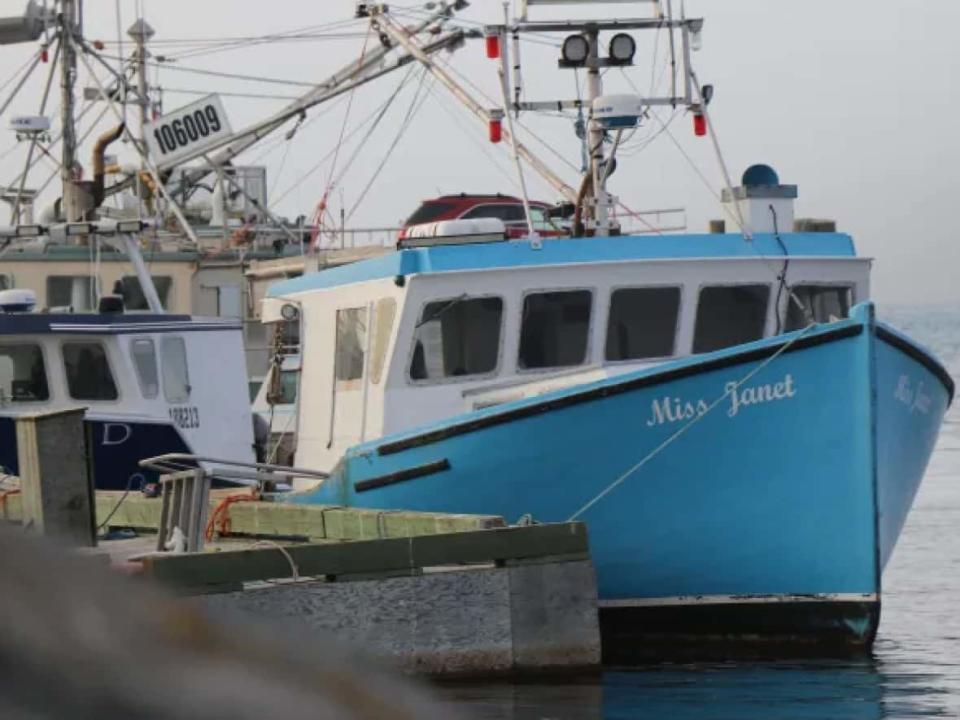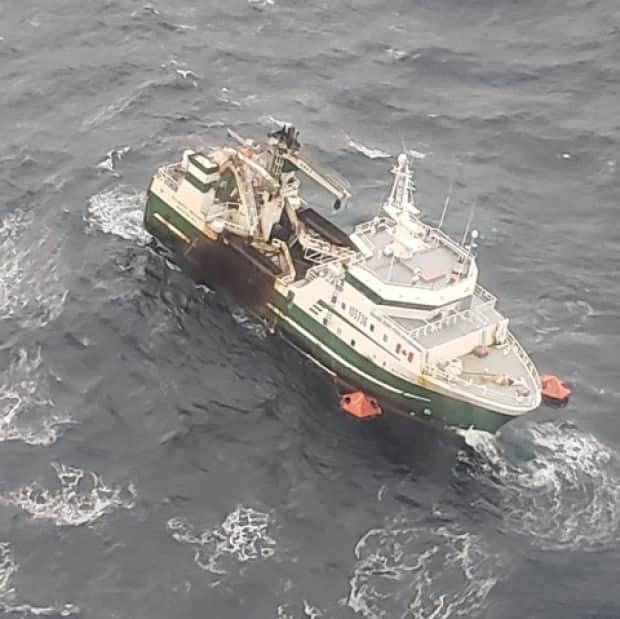'Safety culture' among fishermen sees fewer accidents, lower insurance

Workers' compensation rates in the saltwater fishing industry in Nova Scotia are set to fall for the seventh straight year in 2022.
Premiums have fallen 58 per cent since 2015, creating $12 million in annual savings for the industry, but while lower rates reflect an increased focus on safety and fewer accidents, fatalities are still occurring.
Last week, the captain of the Miss Janet went missing from the fishing boat off southwestern Nova Scotia. His body was recovered off the coast of Yarmouth.
"It's felt in all parts of the province. If you have a loved one that goes out fishing for a living, that sits with you, it is very impactful. I think that sticks in people's minds, perhaps a bit more than the successes," said Matthew Duffy, executive director of Fish Safe Nova Scotia, a non-profit advocacy organization.
Insurance rates plummet
There has been no shortage of serious incidents in the past 12 months, including the death of all six men on board the scallop dragger Chief William Saulis, which sank off Digby in December 2020.
In April of this year, a crew member aboard a fishing vessel in southwestern Nova Scotia had a leg amputated after he got caught in machinery. The province's Labour Department issued a stop-work order on the vessel.

Despite these high-profile incidents, the Workers' Compensation Board of Nova Scotia, which manages workplace insurance in the province, said it is seeing evidence of improved safety in the saltwater fishing industry.
Claims for time lost to injury have dropped by 38 per cent since 2015, meaning fewer people are getting hurt.
The insurance rate charged to employers — from big companies to some inshore boats — has gone from $8.09 for every $100 in payroll in 2015 to $3.49 in 2022.
Board CEO Stuart MacLean attributes this to an "incredible improvement in a safety culture in that sector," but he remains frustrated.
"The really tragic part of this is that the fatalities ... are more intractable and we're still seeing things like the William Saulis," MacLean told CBC News.
Safety is even more important in an industry where ocean conditions compound bad decisions.
"More people are understanding safety," said MacLean. "We've seen a shift of not just knowing about it, but really caring about it. And we've seen evidence of people only doing something if they can do it safely."

He points to dumping day in the lobster fishery, which is now often delayed if weather conditions make it dangerous to set out in boats heavily loaded with traps.
Also, more inshore fishermen are wearing life-jackets.
In March, all 31 people on board the Atlantic Destiny were rescued on Georges Bank when the factory-freezer trawler was abandoned in rough seas after a fire.
MacLean attributes the outcome to the brave helicopter rescue teams and a mindful crew on board.
"I always remember the image of the crew systematically being taken off the deck. They had life-jackets on. They had survival suits on. They had lights. They had their proper training," he said.
Miss Ally tragedy sparked changes
He said it could have turned into a Westray-sized disaster, when 26 coal miners in Pictou County died in an explosion in May 1992.
MacLean said the impetus for change came after the Miss Ally sinking in 2013, when five young men fishing for halibut died in stormy seas off Nova Scotia.
Industry and government came together to develop a plan called Fishing Safety Now that includes man-overboard demonstrations and safety talks on wharves. Five talks are scheduled to take place Tuesday in fishing ports on Nova Scotia's south shore.
It's a change that has happened gradually. Years ago, fishermen would ask why they had to wear a personal flotation device, recalled Duffy.
Now they ask what type they should wear.
"It is really getting safer," he said.
MORE TOP STORIES

